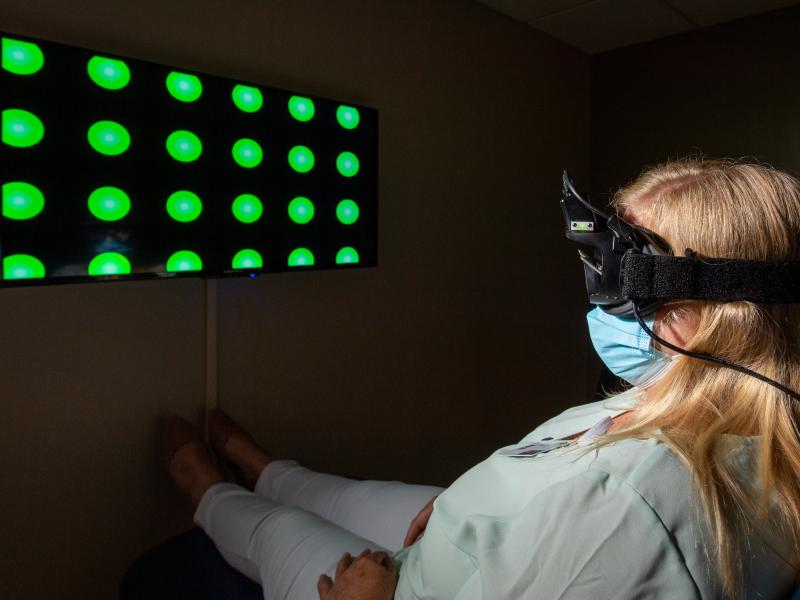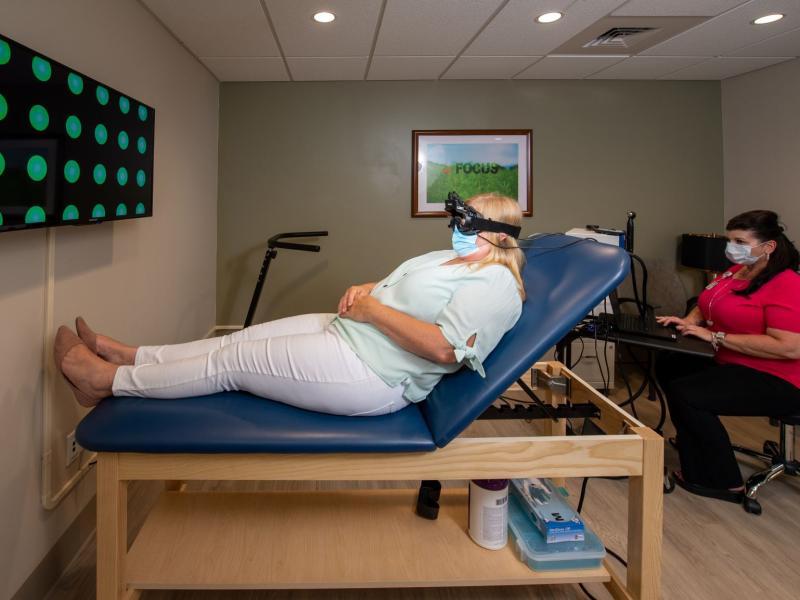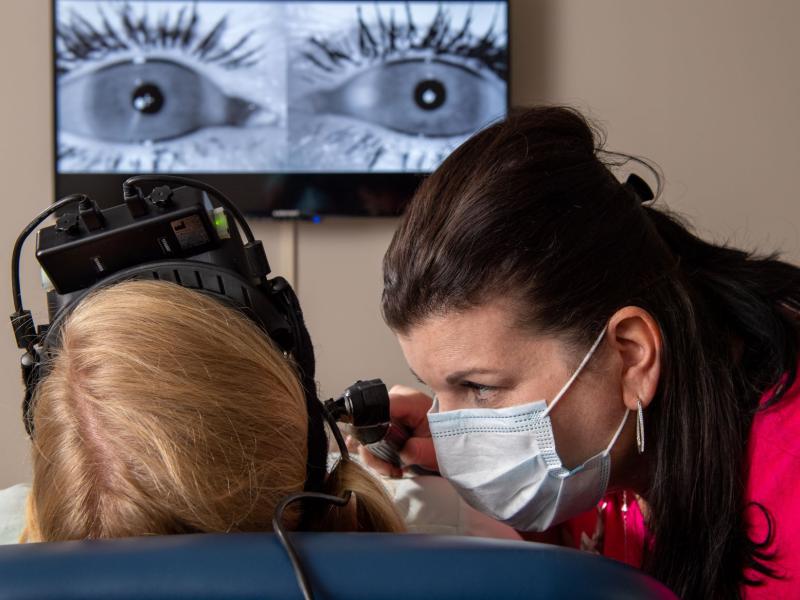Balance disorders can occur for a variety of reasons, and it’s important to understand the root cause of your symptoms so your physician can better treat your condition.
Our Approach to Balance Testing
Depending on your test results, balance can be greatly improved. In fact, it is not uncommon for people with a history of balance problems to regain their stability through accurate testing and appropriate treatment and/or rehabilitation exercises.
Vertigo, for example, is often a result of the movement of calcium crystals deep within your inner ear. These crystals help control your balance, and when they become dislodged from their normal position, they can cause an uncomfortable spinning sensation. Dizziness or instability, on the other hand, might be the result of nerve damage, vision problems, certain neurological conditions or a whole host of other issues.
Patients who have suffered from a stroke, head trauma or whiplash may also experience balance problems. Brain or inner ear surgeries can cause dizziness, too, making physical therapy and rehabilitation crucial to your recovery and overall health.
Balance Tests We Offer
At Inspira’s Balance Centers, we offer these and other balance tests:
Nystagmography
This series of tests help determine your ability to follow visual objects with your eyes. These tests check how your eyes respond to information from your vestibular system. The technician may place painless electrodes around your eyes (electronystagmography, or ENG) or may use an infrared video camera (IR video nystagmography) to conduct these tests. Eye movement tests are useful because some patients with balance system problems have trouble seeing clearly when moving, or they get the distinct sense that objects are moving.
Ocular Motility
This test requires you to follow objects that jump from place to place or move smoothly. The technician will look for any slowness or inaccuracies in your eyes’ ability to follow visual targets.
Optokinetic Nystagmus
Another test your technician may perform requires you to view a large, continuously moving visual image. This helps determine if your eyes can appropriately track and keep pace with these movements.
Positional Nystagmus
During this test, the technician will move your head and body into various positions to gauge your eyes’ response.
Caloric Tests
Caloric tests involve stimulating both of your inner ears (usually one at a time) with warm and then cold air. The technician will monitor the movements of your eyes to make sure that both ears can sense this stimulation.




